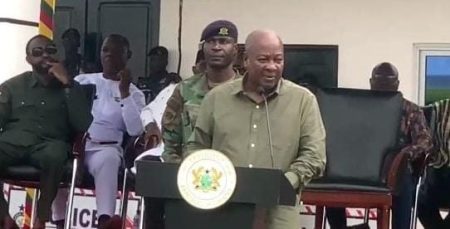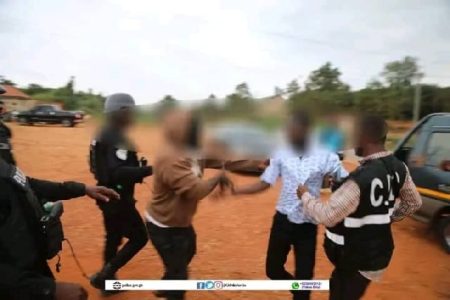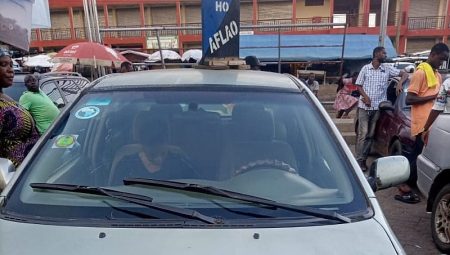The serene town of Kikam, nestled in the Ellembelle District of Ghana, relies solely on the River Ajomosu for its lifeblood – drinking water. This vital resource, however, faced a grave threat in the form of illegal mining, locally known as “galamsey.” Two farmers, driven by financial incentives, had leased portions of their land along the riverbank to illegal miners, jeopardizing the health and well-being of the entire community. The turbidity of the river, a direct consequence of the mining activities, became a glaring symbol of the environmental degradation and the potential health crisis looming over Kikam. It was into this precarious situation that Assemblyman Paul Kodwo Kwaw stepped in, determined to protect his constituents and preserve their lifeline.
Recognizing the urgency and severity of the situation, Mr. Kwaw took decisive action. Instead of resorting to confrontations or political maneuvering, he opted for a legal approach, filing a writ of summons against the two farmers at the Nkroful law court. This strategic move effectively put pressure on the farmers to address the illegal mining activities on their leased lands. The court action served as a catalyst, prompting the farmers to seek an amicable resolution with Mr. Kwaw. They approached him, requesting a withdrawal of the suit in exchange for their commitment to halt the galamsey operations. This willingness to negotiate signaled a crucial turning point in the fight to save the River Ajomosu.
Mr. Kwaw, demonstrating a pragmatic approach to conflict resolution, agreed to explore alternative means of settling the dispute outside the courtroom. An Alternative Dispute Resolution (ADR) mechanism was employed, providing a platform for dialogue and collaborative problem-solving. This facilitated a swift and effective resolution that satisfied both parties. The farmers, now fully aware of the detrimental impact of galamsey on the community and the potential legal ramifications of their actions, pledged to enforce the cessation of mining activities on their properties. They took immediate steps to communicate this decision to the illegal miners, effectively evicting them from the riverbanks.
The positive impact of this intervention was almost immediate. The River Ajomosu, previously choked with sediment and pollutants, began to show visible signs of recovery. The water clarity improved, and the ecosystem started to regain its natural balance. This tangible evidence of the river’s rejuvenation brought immense relief to the residents of Kikam, especially the farming communities who depend heavily on the river for irrigation and sustenance. The swift action taken by Mr. Kwaw averted a potential health crisis and ensured the continued availability of clean water, a fundamental human right.
Mr. Kwaw, widely respected as the Dean of Assembly Members in Ellembelle, seized the opportunity to inspire and encourage his colleagues. He urged fellow assembly members to emulate his proactive approach and take a stand against illegal mining activities within their respective electoral areas. His successful intervention serves as a powerful example of how local leadership can effectively address environmental challenges and protect community resources. He highlighted the importance of community engagement and legal avenues in combating illegal mining and underscored the significance of collaborative efforts between local authorities, community members, and landowners in safeguarding the environment.
The story of Mr. Kwaw’s intervention in Kikam underscores the critical role of local leaders in environmental protection. It demonstrates the power of legal action combined with collaborative dispute resolution in achieving positive outcomes for communities facing environmental threats. His proactive approach, driven by a deep sense of responsibility towards his constituents, not only saved the River Ajomosu but also set a precedent for other assembly members to follow in the fight against illegal mining. The recovery of the river stands as a testament to the effectiveness of decisive local action and the importance of community involvement in environmental stewardship. This case also emphasizes the need for broader governmental support and stricter enforcement of environmental regulations to effectively combat the pervasive issue of illegal mining in Ghana.













